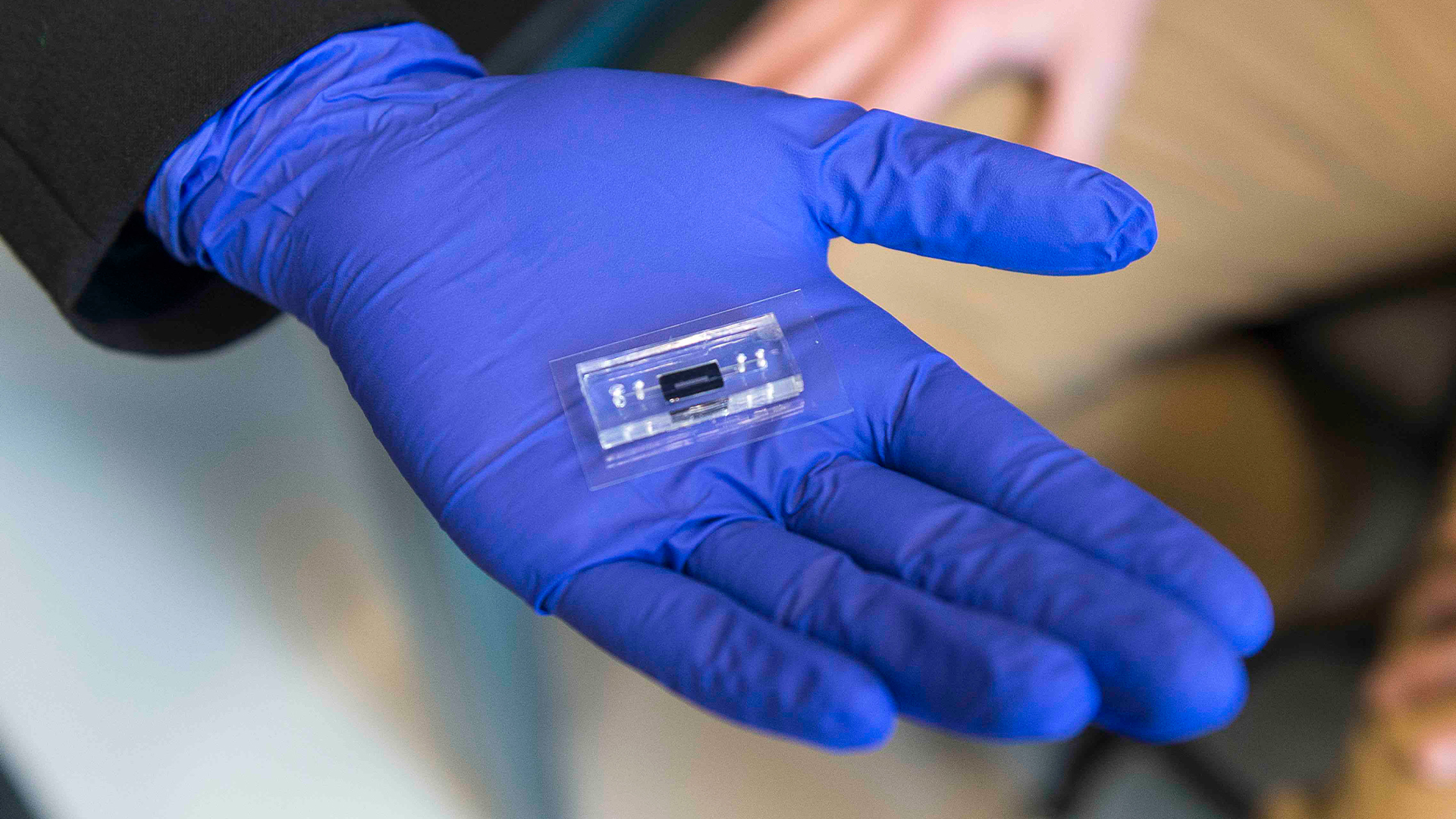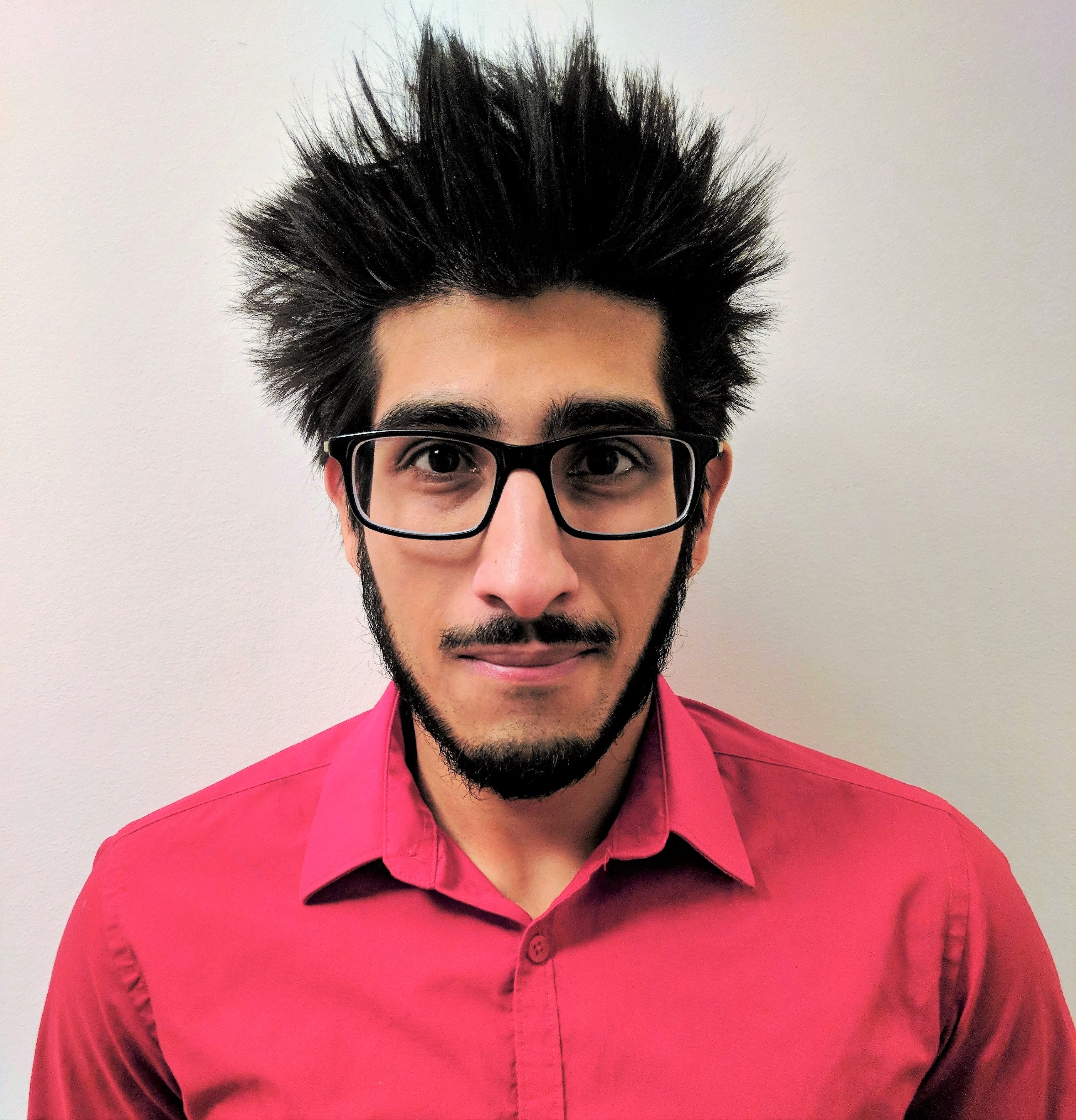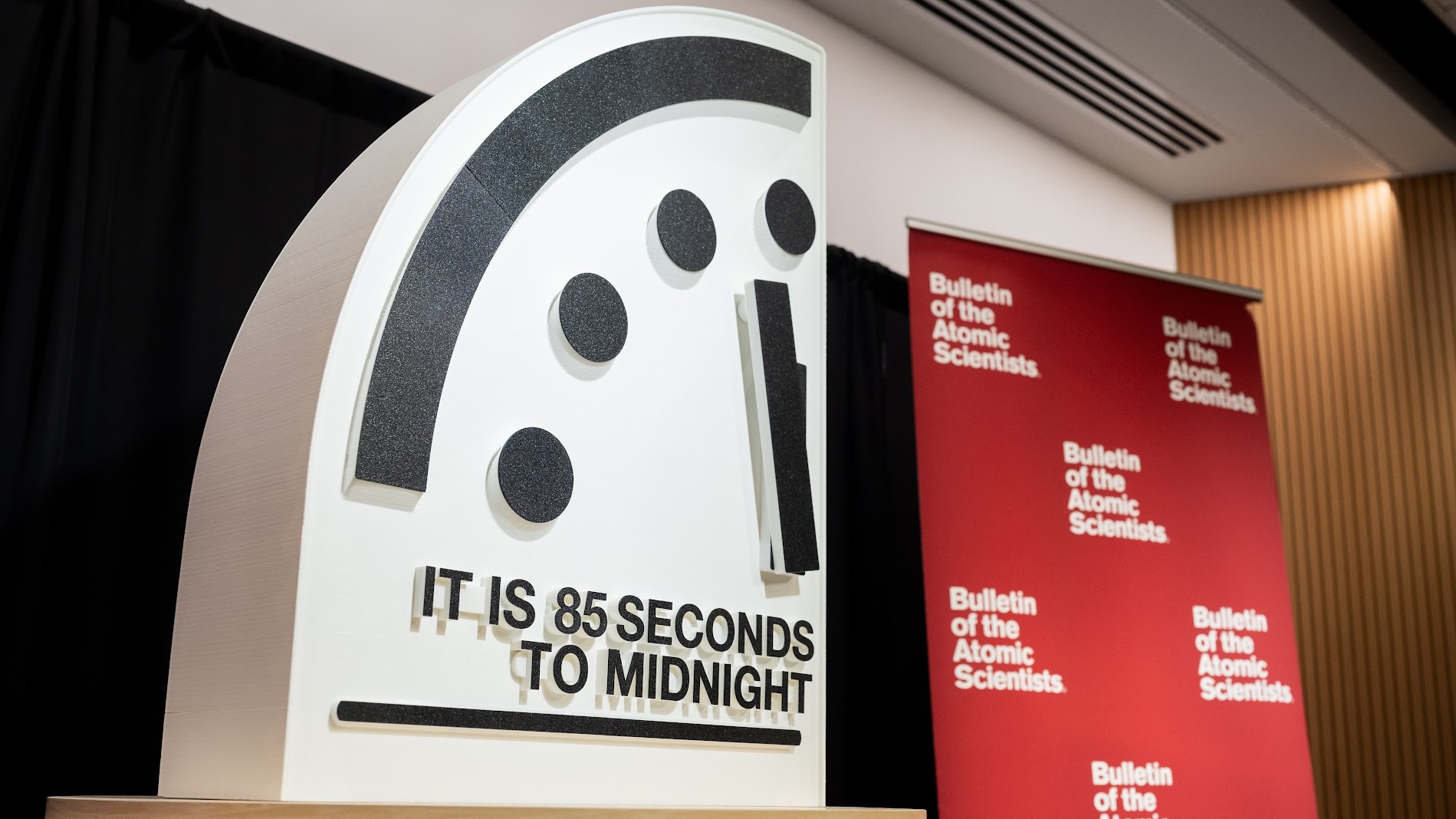New DNA-infused computer chip can perform calculations and make future AI models far more efficient
The new processor stores data in modified DNA molecules and uses microfluidic channels to perform basic computations.

Scientists have created a new biocomputing chip that makes calculations using a DNA substrate, including mathematical operations essential to artificial intelligence (AI) training and big data processing.
Researchers described the new biocomputing platform Oct. 19, 2023, in the journal PLOS One. DNA is known as the blueprint for life and encodes genetic information, like data can be encoded onto electronic-based storage devices.
DNA-based devices have previously been used to encode data on a small scale, but this prototype chip uses DNA to process data too.
"DNA is excellent at storing information, in fact, it is much better than the electronic modes of memory because it is about 3-to-6 orders of magnitude more compact than most memory hardware that we have; it is also much more reliable and durable," study co-author Amlan Ganguly, head of the Department of Computer Engineering at the Rochester Institute of Technology, said in a statement.
DNA has long been proposed as a more effective way to store data than conventional methods, such as hard drives and solid state drives (SSDs), and companies such as Microsoft have also identified DNA as one candidate to store and manage skyrocketing amounts of data. Researchers have previously built DNA-based storage devices, including encoding the DNA molecules of bacteria with a video of a horse in 2017.
But data transfer speeds on DNA-based storage platforms are much slower than conventional storage devices, according to a 2018 paper published in the journal 3Biotech. DNA storage is also much more expensive to manufacture.
Get the world’s most fascinating discoveries delivered straight to your inbox.
In addition, not just storing but processing data on devices built from DNA has been relatively unexplored.
In the study, Ganguly and his team investigated how to manipulate DNA at the molecular level to mirror many of the functions that DNA shares with computing, such as sequencing (reading data) and synthesizing (writing data).
The encoded data on the DNA by nicking strands at various points to represent the 1s and 0s of binary, and represented different calculations by using a network of microfluidic channels. This transfers fluids around an integrated circuit to perform functions as chemical reactions.
They found they could store and process data on the same chip and perform basic calculations that may one day help to train artificial intelligence (AI) models.
DNA-based data processing offers many benefits, according to the paper. Unlike in conventional computing, the storage and computing components are handled by the same component rather than separate ones, although this is not a benefit isolated to DNA storage.
This means that because DNA can store up to 1,000 times more data per unit volume than SSDs can, processing that data becomes more efficient. DNA processing can also offer "unprecedented parallelism" by conducting billions of operations simultaneously, the scientists wrote in their paper.
This new device is a proof-of-concept, but the scientists hope that by scaling the device it can one day be used to train AI systems.
"That is the bridge from storage to computation and using DNA as a vehicle to do the computation," Ganguly said in the statement, adding that a computer made from a DNA substrate could be far more environmentally sustainable than traditional electronics.

Keumars is the technology editor at Live Science. He has written for a variety of publications including ITPro, The Week Digital, ComputerActive, The Independent, The Observer, Metro and TechRadar Pro. He has worked as a technology journalist for more than five years, having previously held the role of features editor with ITPro. He is an NCTJ-qualified journalist and has a degree in biomedical sciences from Queen Mary, University of London. He's also registered as a foundational chartered manager with the Chartered Management Institute (CMI), having qualified as a Level 3 Team leader with distinction in 2023.
 Live Science Plus
Live Science Plus





